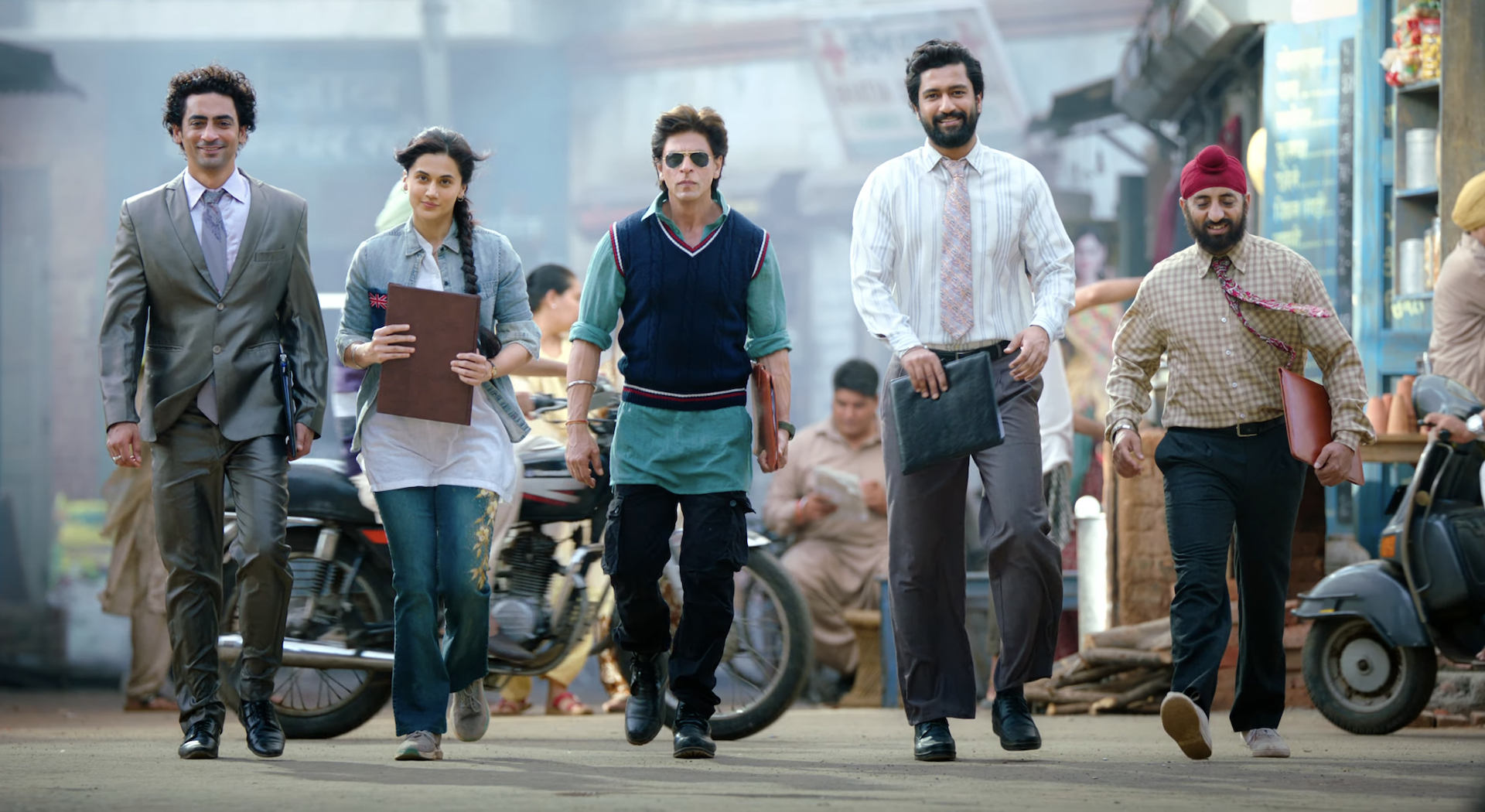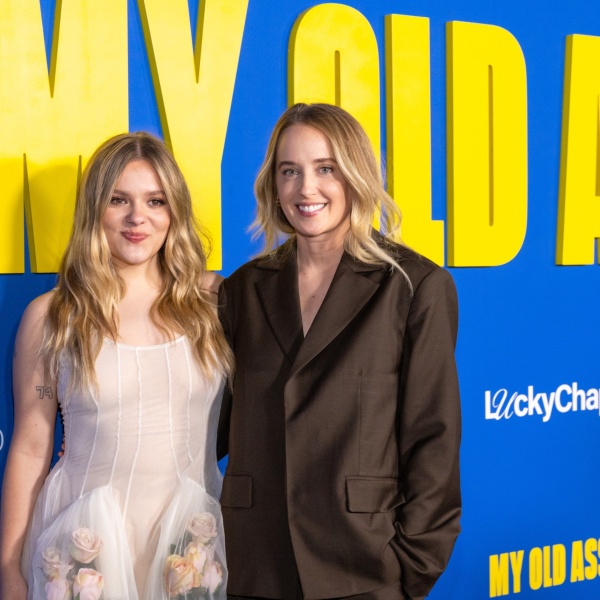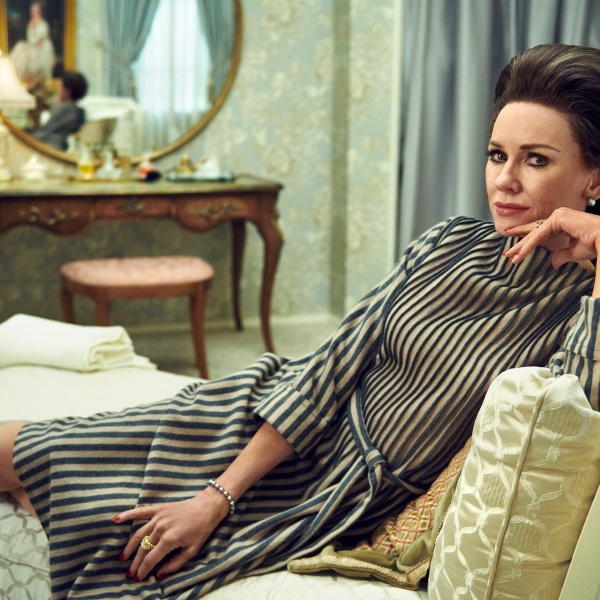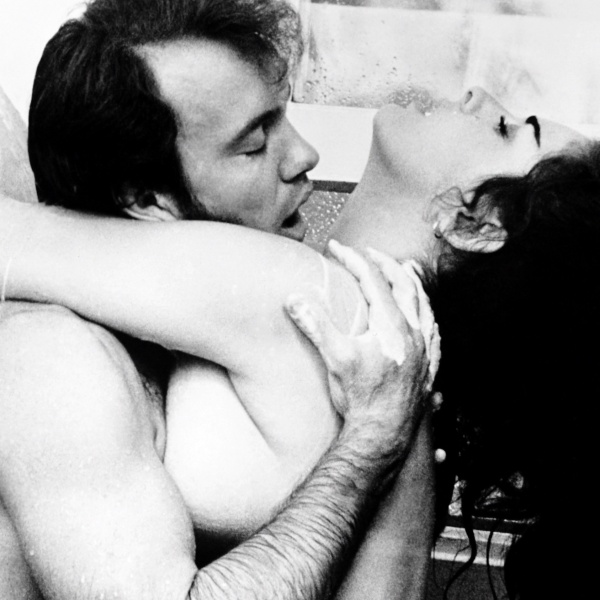The immigrant dream might be Western civilization’s greatest export. Since the days of colonialism and long since, people all over the world dream of moving to the U.K., Europe, or U.S. to start a new life and change their family’s legacy.
Reality shines through day-by-day; that supposedly civilized countries are plagued by their own issues, that predominantly white spaces aren’t always safe for people of color, that moving to a new city or country anywhere in the world means struggling to build that life and questioning the whole endeavor.
All of this comes to light in Rajkumari Hirani’s “Dunki,” a story ostensibly about the treacherous trek across nations, but more intriguingly about the dream dangled at the end of those treks — and whether it’s a dream at all, but a lie.
The title “Dunki” refers to “donkey-flights,” or the practice of people migrating without documentation from one country to another, risking deportation and death every step of the way. As the opening and closing title cards stress, borders and visas penalize the poor. “Dunki” begins in the present, when Manu (Taapsee Pannu), Balli (Anil Grover), and Buggu (Vikram Kochchar) are graying with age in London but desperate to go back home to Punjab. They can’t get visas, so they seek out the help of Hardy (Shah Rukh Khan), who helped them make the perilous trek from India 25 years ago.
“Dunki” marks Shah Rukh Khan’s third major release of 2023, following January’s “Pathaan” and September’s “Jawan,” after five years not leading a feature — and likely another box office win (though it’s tracking behind Prabhas’ “Salaar” in the U.S. and parts of India). Hirani’s last three films broke existing records for the highest-grossing Indian film, and even if “Dunki” doesn’t, the actor-director combination alone guarantees a baseline profit.
Hirani loves to make a film with a message — particularly one in which characters repeatedly declare the message in voiceovers, monologues, and songs. “Dunki” is no different, its pacing often interrupted to make sure the audience is up-to-speed on themes before moving on. The forward momentum suffers from this, and from sections that are quickly explained via narration but otherwise skipped over (for unknown reasons, the chosen narrator is Buggu). For a film called “Dunki,” the actual journey comprises maybe half an hour of the runtime, again with huge swathes inexplicably omitted.
Where the film clearly thrives is during the first act in India, which showcases the friends’ daily struggles and intimate chemistry back in 1995 (as well as a classic bumbling teacher played by Boman Irani). This also happens to be the section featuring Vicky Kaushal, who gives the film’s best performance and does better than anyone else at threading the needle between zany gags and frankly graphic drama. He also happens to be billed as a “special appearance,” which means his screen time has an expiration — and those familiar with how Hirani resolves grave conflicts will see a version of the end coming from a mile away. It’s a completely dispensable arc that would have cut 30 minutes, or freed that time up to strengthen countless subplots and tertiary characters introduced arbitrarily for the dunki itself.
Again, all of this is par for the course with Hirani, but it feels a little out-of-step this time around; a formula and structure that would have been more effective and incisive five to ten years ago, but noticeably overwrought in the modern era. That said, platforming prominent issues for a massive audience — even if they’re a bit preachy — is still a significant move (remember the “Barbie” monologue?), but “Dunki”s insistence to also be a love story, a comedy, and a film spanning decades makes all of this extremely difficult if not entirely impossible.

This is Khan’s first Hirani film, but in line with his recent position to make films with political messaging alongside popcorn entertainment (“Jawan” included the actor talking directly into camera and telling people to vote). When he’s not de-aged by makeup, prosthetics, or CGI (or some combination of the three), Khan is as earnest and invigorated as ever. He jumps higher than any other dancer in “Lutt Putt Gaya,” (the film’s only traditional song) and his character becomes the group’s de facto leader. When Khan says that the British didn’t need visas to colonize India, or that birds don’t need them to migrate in winter, you listen — you might laugh, but you listen, and you want to stand up and fight with him. The film is peppered with his filmography — from the explicit imagery invoking “Dilwale Dulhania Le Jayenge,” “Veer-Zaara,” and “Main Hoon Na” to shades of Aman’s heroism in “Kal Ho Naa Ho,” Om’s passion in “Om Shanti Om,” and thematic fabric from “Swades” (I also counted references to “Fauji,” “Chamatkar,” and “Ram Jaane,” but those could be coincidence).
Khan’s stardom can be a distraction from the rest of the ensemble. Pannu, whose body of work points to smart and interesting choices, leads them admirably, delivering the best performance besides Kaushal and comfortably carrying the burden of being the film’s sole woman. Though she mostly hasn’t appeared as a commercial lead, “Dunki” serves as a reminder that acting chops aren’t what bars female actors from heroine status. Manu’s final act reveal is one twist too many, and you will leave the film knowing nothing about what she actually did in London after that grueling expedition.
In the end, “Dunki” undermines its own messaging, sandwiching a series of informative cards about donkey flights between a rushed conclusion and comedic coda. Hirani’s films are mostly marketed and memorialized as comedies, glossing over the violence and suicide as well as dramatic subject matter (a wider trend in Indian cinema — the reception of “Simmba” comes to mind). “Dunki” is far from the best film about its chosen topic, but with global reach comes great responsibility.
Grade: C+
“Dunki” is now playing in select theaters.







